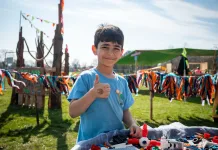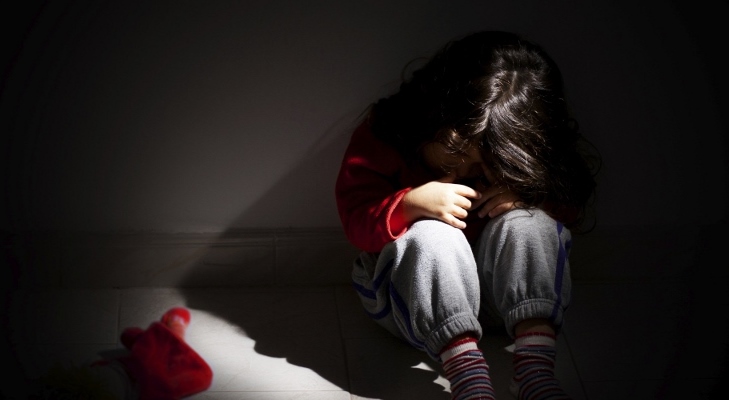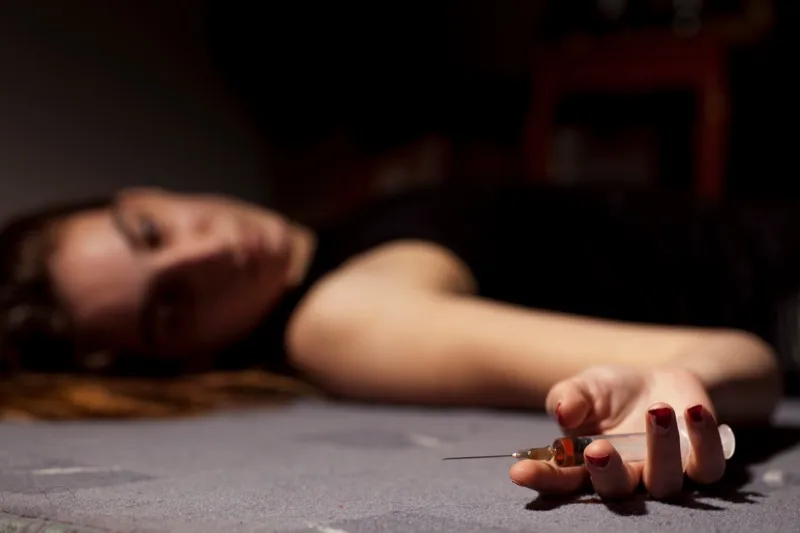
British Pakistanis tend to steer away from drug services, so the reality of heroin use among the 1.5 million living in England and Wales is murky.
BYLINE: Dr Mohammed Qasim
Every day, Alya puts in a shift to find the £20 or £30 she needs to buy her daily dose of heroin, a 12-year habit she’s had since she was 23.
Sometimes she begs, sometimes gets paid small amounts of heroin to sell it to her friends. Other times she shoplifts to order, mainly perfume, and toys and clothes for kids.
Alya, whose name we have changed because she is too scared to be identified, is one of hundreds of British Pakistanis with a heroin addiction in England.
Much like others, very little is known, mainly because they exist off the radar from the authorities and are shunned by their own communities.
Despite the huge stigma around drug addiction, over the last two years I’ve been speaking to heroin users within the British Pakistani community in Bradford, a city in West Yorkshire with the highest proportion of people of Pakistani ethnic origin – 25 per cent – in England.
People like Alya do not easily fit into the image of the average, white heroin user. Experts say Pakistani heroin users in the UK are more likely to use the drug alone, less likely to get help at drug projects and less likely to inject the drug.
This is often a symptom of heightened stigma around addiction due to their Muslim religion and family honour, called ‘izzat’.
‘Maal’ used by British Pakistanis
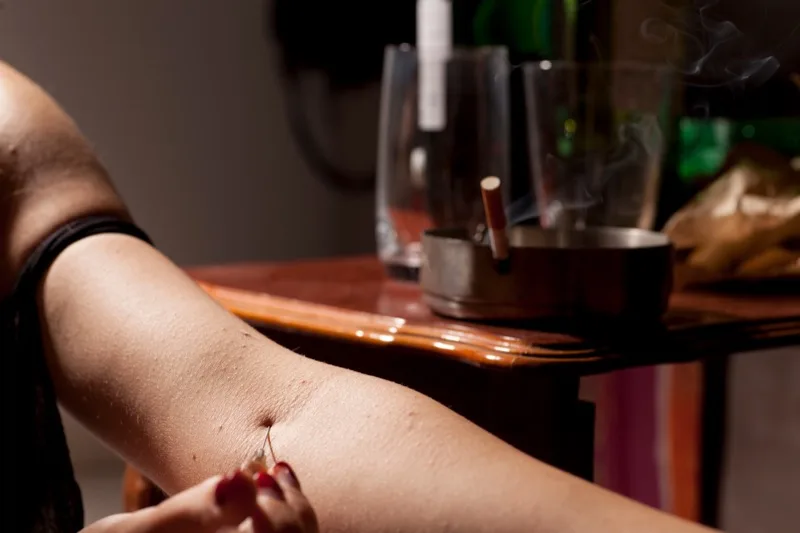
So, what is it that makes British Pakistanis from religiously conservative homes end up addicted to heroin and shunned by their family and community?
Alya said she started using ‘maal’, a slang word for heroin among British Pakistanis, after a forced marriage badly affected her mental health.
“He was a right bastard, he raped me almost every day. He wanted to control me and did not let me do anything,” said Alya, who is streetwise, talkative and most often wears joggers and a sweatshirt.
“I was pregnant in no time, but I had to get away, but nobody understood me. I couldn’t just go to the police, so I ended up staying with some friends. They were on heroin and I used it because I was in a bad place.”
Alya’s baby was taken into care, and when her family found out about her heroin use, they forced her to visit a ‘pir’, a spiritual healer who they hoped would exorcise the bad spirit within in her.
“My mum and brothers put me in the car and dragged me to see the pir. He looked at me once, and turned to my mother and said, ‘she is possessed with a jinn, [a bad spirit] who is controlling her and making her use heroin as a punishment for not obeying the jinn’.
“He started blowing at me and reciting verses from the Quran. My mum was sat next to me, she was crying the whole time.
“Then the pir turned to my parents and said: ‘If I was you, I would take her to Pakistan to a holy shrine and ask a senior pir to take the jinn away from her as I can’t do it, I’m not powerful enough’.”
Alya did not end up going to Pakistan, but her family disowned her because they said she had brought shame on them.
Data on Britain’s Pakistani heroin addicts
According to official data, last year there were 1,607 people with a Pakistani background officially registered as being treated for heroin addiction in England. But because they tend to shy away from drug services, the reality of heroin use among the 1.5 million British Pakistanis living in England and Wales is murky.
Ethnicity is not recorded in the government’s drug-related death statistics so we have little idea how many British Pakistanis make up the 3,000 or so fatal overdoses from illegal drugs each year.
Occasionally heroin users from Britain’s Pakistani community pop up in the courts after being caught stealing to buy drugs or dealing them. But most of the people I spoke to are living taboo lives behind closed doors, sometimes keeping their addictions hidden behind a facade of normality.
Strolling around the city one evening, Yusaf, a 41-year-old who had been using heroin for 15 years, who like all the people I spoke to did so on the condition of anonymity because they feared being demonised. He said he knew many British Pakistanis on heroin, it’s just that some of them don’t look like how you would expect them to.
Later on, he stopped to chat with someone he knew, a well-dressed, professional-looking man in his late 30s. After they said goodbye, Yusaf said heroin use was more common among ‘apnas’ (our people), than many think: “Can you see that guy? What do you think?does he look like a junkie?
“Well he has been on maal for longer than me. See, there’s loads of apnas on it, it’s just the average person would not have a clue, because they don’t look like heroin addicts.”
Drugs are ‘haram’
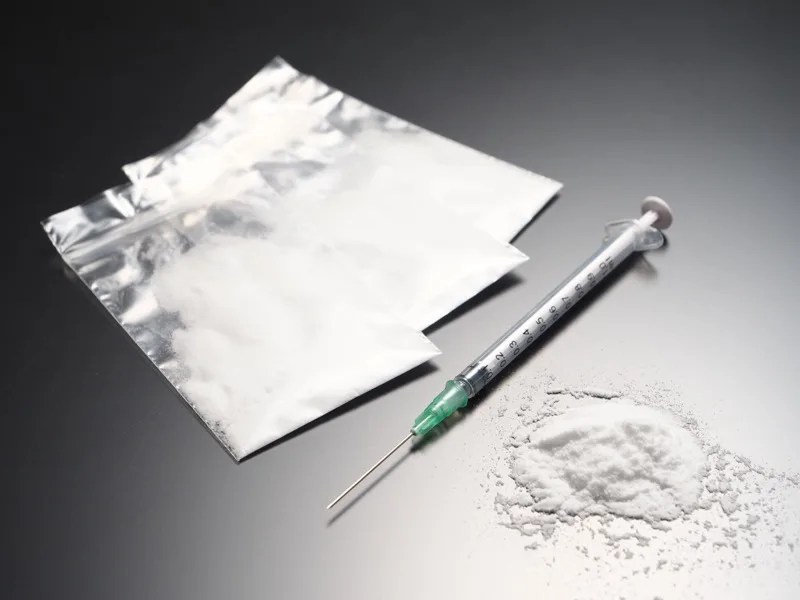
Even for those dedicated to Islam, which judges intoxication and drugs as haram (forbidden), using heroin can happen.
Akhtar, in his early 40s with a large beard, is a religious and proud man. He studied in Darul Uloom, an Islamic boarding school in Chislehurst, south east London, where he completed Hifz (memorising the entire Quran by heart).
But he said the stresses of life got to him and he developed a heroin habit. Now he’s a street hustler who supports his heroin habit by acting as a middle man, supplying heroin to other users, as well as by selling stolen items shoplifters pass onto him.
“I worked, I had everything, a good life, a good job, beautiful children and now look at me. I’ve lost everything, what for, it’s because of this thing.” Akhtar then put his hand in his pocket and revealed a small bag of heroin which was wrapped in foil and which he was waiting to sell to a customer.
“Our people look at us like we are dirt but it can happen to any one of us, I never thought I would end up on maal.”
Despite the stigma surrounding drug use, heroin is easy to get hold of within Bradford’s Pakistani community due to its links with the drug’s importation and its supply in cities such as Bradford.
Moreover, Bradford is a city with both high rates of people with heroin and crack problems and deprivation.
Hooked
Dressed in an expensive tracksuit and with a good sense of humour and a charming nature, Mohammed, 33, said he had been using heroin since he was 26, after he became a heroin tester for drug dealers his use became addictive.
In the case of Abdul, 30, who had been using heroin since he was 20, it was his father, a well-known heroin dealer in Bradford, who exposed him to heroin.
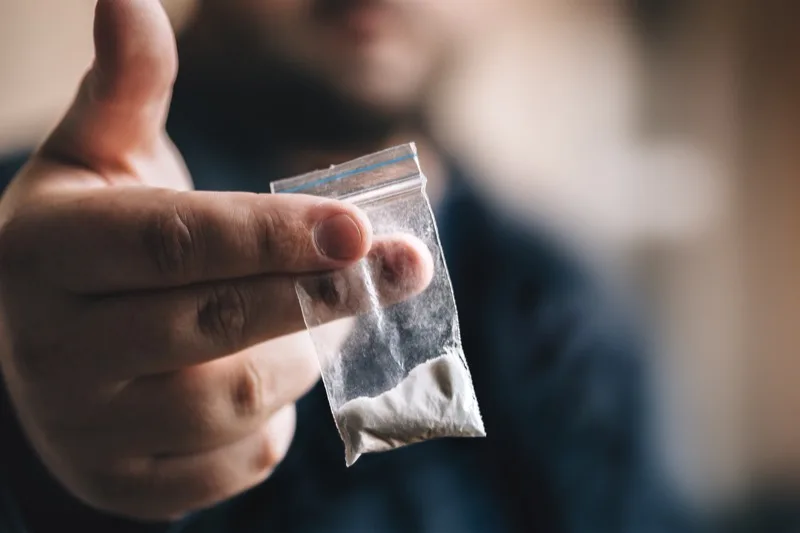
Abdul’s father did not want him to use drugs, but rather to make money selling them. Even so, Abdul ended up getting high on his own supply. He holds his father responsible for his subsequent addiction to the drug he was supposed to be selling.
“I looked up to him. I used to see him selling it. He was making stupid money, he would be counting money on the bed and would throw it at me and say ‘it’s all about making money son, you don’t use this shit’,” said Abdul, who is now living in poverty and suffers from depression.
“But then one day I saw his friend, he used to always come to the house, he was in our front room using a crack pipe and I thought to myself, ‘I wonder what it is like?’. I tried it, and then I used it again, and then I started heroin.”
Sex work to fuel addiction
Most of the British Pakistanis I spoke to were unemployed and sold heroin to fund their habit.
Two of them had been to prison for dealing. Some worked for established dealers as “runners” selling direct to drug users in the street, some shoplifted, and a few begged for money. Some went knocking on doors of people they knew.

Parveen – a friend of Alya, earned money to buy heroin by shoplifting, usually from some of Bradford’s larger stores.
She said it was easier to shoplift dressed in traditional Pakistani clothes than in western clothing, as staff in the stores did not suspect her because she did not look like a typical thief.
Shy and with a stammer, it became apparent she earned money for heroin as a sex worker. She had several clients who paid her for sex in rented rooms.
Two of the heroin users we spoke to worked in full-time jobs. Academics call them “controlled” heroin users – a group of people who use heroin without the drug impacting too heavily on their lives.
Hussain, another heroin user from Bradford who used to work for Bradford’s bigger drug gangs, now works for a local takeaway as a delivery driver.
There are days when he uses the company car to work for local dealers, dropping off drugs to waiting customers. He said he needed the extra money as he could not afford his heroin habit solely on his wage from the takeaway.
‘Get lost you smack head’
Some people started using heroin through sheer tragedy. Eisa walks around begging from car to car pleading with people to give him money. Most people were verbally abusive towards him.
“Get lost you smack head,” shouted one of the drivers, another got out of his car and yelled: “Don’t touch my car or I will knock you out”.
Eventually one of the drivers, hands him a £10 note and advised him to leave the area for his own safety.
Now 41, Eisa has been using heroin for the past four years. Born and raised in Pakistan, he’d moved to Bradford after an arranged marriage, working hard in a bed and mattress factory in Dewsbury.
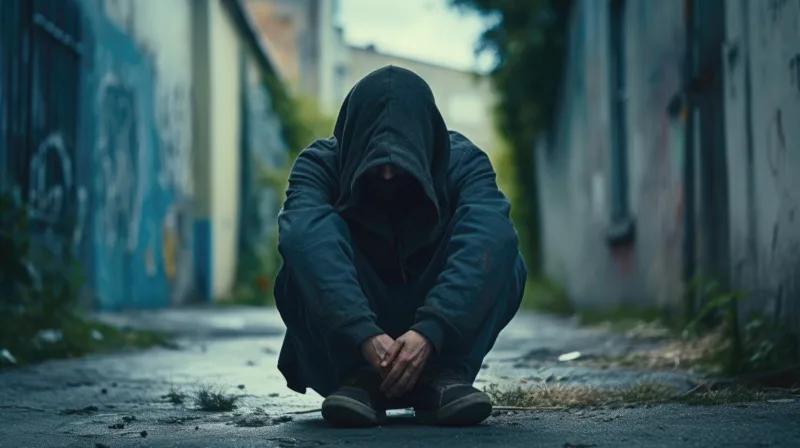
His story is a particularly sad one.
“It was the death of my five-year-old son. It was after losing him that I could not face it, it was too much for me, he was my life, my everything,” says Eisa.
He took out his phone and showed a picture of his son in his arms. “I couldn’t keep going on after that, my wife, we were arguing a lot more, she was struggling too and she would take it out on me.
“She changed after the death of our son, our relationship felt empty, there was nothing left after that, it was the one thing keeping us together and he was no more, we had tried for years and years to have children and losing him was too much, Allah bless his soul.”
The death of his son had taken its toll on his mental health and he needed professional support, which he had not managed to get. His family had disowned him. Nobody wanted to help.
‘Getting clean in Pakistan’
For those whose families do try and help by sending them to Pakistan to “get clean”, things often didn’t work out well.
Mohammed Ashfaq is managing director of KIKIT, a specialist Black, Asian and multi-ethnic drug addiction support service in Sparkhill, Birmingham, an area with a high British Pakistani population.
Ashfaq said he’s witnessed many people shipped off to Pakistan to try and get them away from heroin addiction, but said the issues are not addressed properly.
“In Pakistan the heroin is even more readily available, it’s stronger and a lot cheaper. So they come back with an even worse habit. Some have died of overdoses there,” he says.
Ashfaq said sending people to spiritual healers in the UK is “a huge problem”, and a way of avoiding confronting issues such as mental health and addiction.
KIKIT tackles issues of shame and religion head on. The project works with theologists and has a 12 step programme, traditionally based on Christian values, adapted for Islamic principles.
Ashfaq said a lot of the British Pakistanis he sees with addictions have an identity problem. “Many are second generation, who are so different from their parents. They act differently in private than out in the community.”
He said sometimes families end up feeding their child’s habit so they don’t go out to beg and steal in public. In some cases, drug users hold families to ransom, that if they don’t give them money to buy drugs, they will cause them shame.
At New Vision Bradford, drug workers speak directly with Imams of local mosques “to encourage engagement and confidential safe spaces within communities such as community halls for people to speak to professionals”, reducing the need to attend highly visible treatment service buildings.
There are signs British Pakistanis with heroin problems in Bradford are seeking more help.
Given rising levels of deprivation and unemployment in Bradford, the relatively easy access to heroin within its British Pakistani community, it’s imperative the city maximises efforts to find and help those suffering behind closed doors.
But, it is also down to community leaders and religious institutions along with families to work together to better support people with heroin and other drug addictions, before they end up in jail or one of Britain’s rising number of overdose fatalities.
Dr Mohammed Qasim, a visiting research fellow at the LSE, was this year awarded an MBE for his research on drug dealing and gang culture, much of it initially covered by VICE. His latest book, ‘Poverty, Prison and Identity: British Pakistanis and Desistance’ will be published later this year. He can also be found on Twitter.



